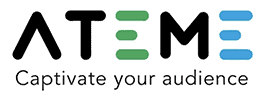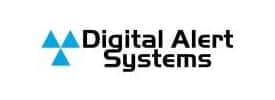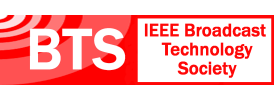- About
- Members
- Sponsors
- Subcommittees
- Technical Documents
- News
- Events
- Spotlight ATSC 3.0
- Contact Us
- Member Login
- Member Meetings
- Advanced Search
Search Site
Member Links
- About
- Members
- Sponsors
- Subcommittees
- Technical Documents
- News
- Events
- Spotlight ATSC 3.0
- Contact Us
- Member Login
- Member Meetings
- Advanced Search
Noland Named Chair of OAS Working Group on Broadcasting
Posted on December 10, 2024 in ATSC News

The Inter-American Telecommunications Commission’s Permanent Consultative Committee of the Organization of American States (OAS) has named ATSC President Madeleine Noland as Chair of the group, joining wireless and broadcasting officials from three other Americas-region countries in a leadership role.
The OAS is the primary regional forum for political dialogue, cooperation, and problem-solving in the Americas, bringing together 35 member states from across the western hemisphere to discuss issues of mutual importance. One of the key OAS entities is the Inter-American Telecommunication Commission – also known by the acronym “CITEL.” It’s this group that facilitates the development and coordination of telecommunications policies across the region.
ATSC is an associate member of CITEL’s Permanent Consultative Committee II (known as PCC.II), which specifically focuses on radiocommunications and broadcasting to address issues like spectrum management, digital broadcasting, and emerging technologies.
“For ATSC, being an associate member of PCC.II is highly valuable because it provides direct access to key policymakers, broadcasters, and regulators throughout the Americas, helping to promote the adoption and harmonization of ATSC 3.0 technology. This membership allows ATSC to contribute to discussions that shape the future of broadcasting, ensuring that its standards are considered in regional initiatives and that it stays aligned with regulatory developments. Recently, I was asked to lead the PCC.II Working Group on Broadcastign. I am honored to be entrusted with this responsibility. It puts ATSC on the international stage in a new way, and the three Vice Chairs from Brazil, Trinidad & Tobago, and Paraguay will be excellent allies and contributors to the group’s future success and the success of broadcasting in the Americas and beyond,” Noland said.
“I extend a special thanks to the U.S. CITEL delegation for its support. With so many developments underway for ATSC 3.0 in the U.S., in the Caribbean, and in Latin America, there is much to discuss to ensure that viewers throughout the Americas have the opportunity to enjoy the benefits of next-generation broadcasting,” Noland added.
Posted in ATSC News
News Categories
News Archives
Subscribe
Subscribe to The Standard, our monthly newsletter. Learn More
Join ATSC
ATSC is a membership organization with both voting and observer categories. Voting members include corporations, nonprofit organizations, and government entities, and they participate actively in the work of ATSC. Observers are individuals or entities not eligible to be a voting member.
Subscribe to our Newsletter
Subscribe to The Standard, our monthly newsletter, to stay up-to-date with ATSC news and events around the world.
Site Links
Contact Us
ATSC
1300 I Street NW, Suite 400E
Washington, DC 20005 USA
Do you have questions about ATSC?
About ATSC
ATSC, the Broadcast Standards Association, is an international, non-profit organization developing voluntary standards and recommended practices for digital terrestrial broadcasting. Serving as an essential force in the broadcasting industry, ATSC guides the seamless integration of broadcast and telecom standards to drive the industry forward. Currently, the ATSC 3.0 Standard is providing the best possible solution for expanding the potential of the broadcast spectrum beyond its traditional application to meet changing needs. From conventional television to innovative digital data services, ATSC has one clear goal: to empower the broadcasting ecosystem like never before.
© 2026 ATSC































